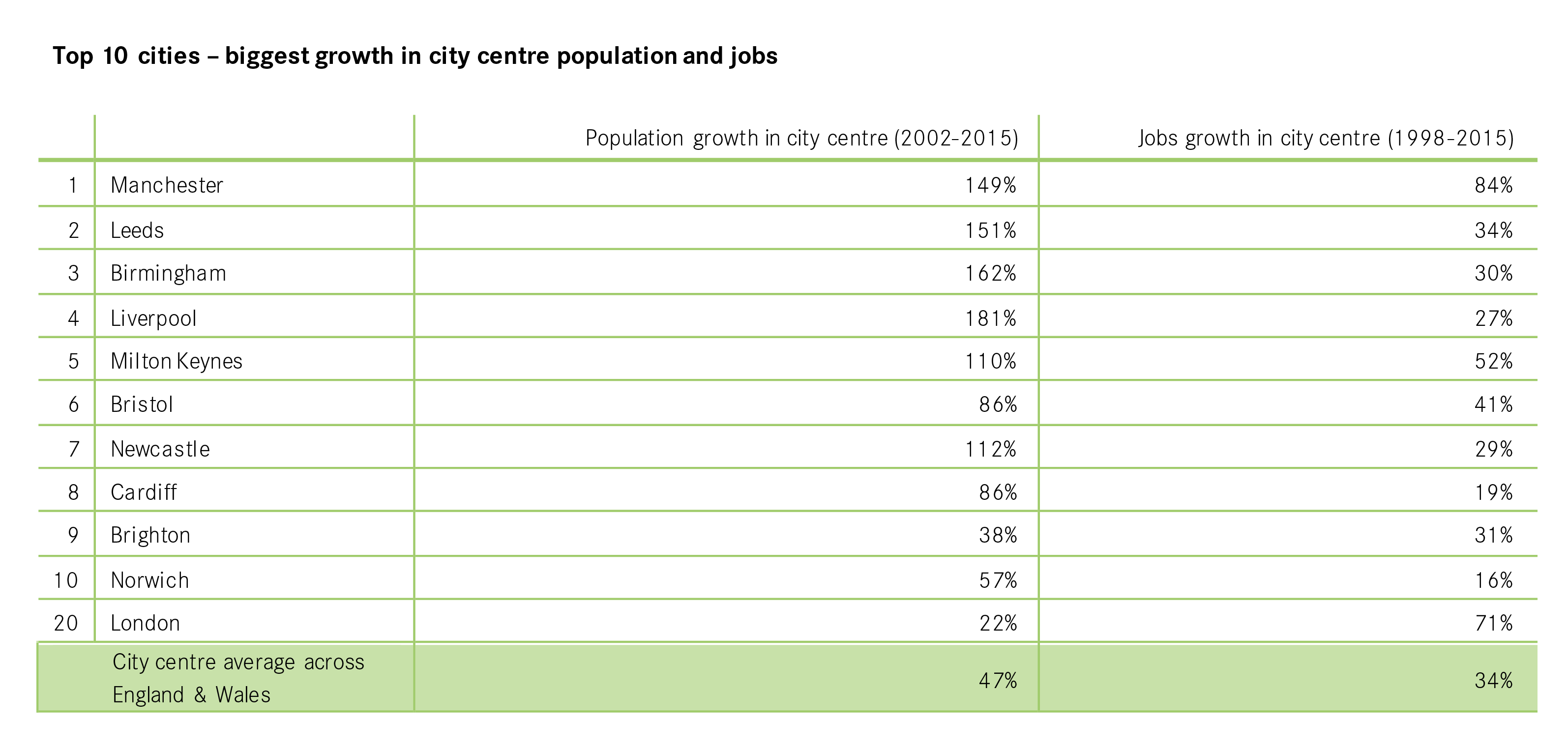March 22, 2018
Action is needed to protect commercial property driving growth of UK cities
 A new report from the Centre for Cities think tank outlines the scale of urban transformation in big Northern and Midlands cities over recent decades and its dependence on the ready availability of commercial property. The report, City Space Race, shows that the number of people living and working in Manchester, Leeds and Birmingham city centres has soared in comparison to other cities across the country but also warns that planning reforms are needed to enable these cities to provide both the commercial space and housing they need to continue to thrive. The report, sponsored by law firm DAC Beachcroft, examines the challenges British cities face in managing competing demands for residential and commercial space – especially in their city centres, where high skilled, high paying businesses increasingly choose to locate.
A new report from the Centre for Cities think tank outlines the scale of urban transformation in big Northern and Midlands cities over recent decades and its dependence on the ready availability of commercial property. The report, City Space Race, shows that the number of people living and working in Manchester, Leeds and Birmingham city centres has soared in comparison to other cities across the country but also warns that planning reforms are needed to enable these cities to provide both the commercial space and housing they need to continue to thrive. The report, sponsored by law firm DAC Beachcroft, examines the challenges British cities face in managing competing demands for residential and commercial space – especially in their city centres, where high skilled, high paying businesses increasingly choose to locate.It claims that the cities which have seen the biggest growth in their city centres over recent decades are not those with long-established successful economies (which are largely in the South East), but instead the major urban centres of the North and Midlands, which until recently had struggled to shake off their post-industrial hangovers.
Manchester has seen the highest city centre growth in England and Wales in recent decades (as measured by combined jobs and residential growth in central areas), followed closely by Leeds, Birmingham and Liverpool.
The city centre populations of these cities all grew more than 6.5 times faster than that of London’s between 2002 and 2015.
Moreover, jobs growth in Manchester city centre outpaced all other cities in England and Wales, including that of London, despite the capital’s continued dominance in the national economy.
However, the report also warns that the urban resurgence in places like Manchester – and the continued growth of other successful cities – could be undermined by planning policies which prioritise residential development over commercial space in city centres.
In particular, it argues that Permitted Development Rights (which allow commercial space to be converted for residential use without planning permission) are threatening the commercial property which is integral to attracting firms and jobs to city centres.
The report makes two key recommendations to ensure that cities can protect and strengthen their commercial centres, while also building the houses they need:
- The Government should allow cities to exclude their centres from Permitted Development Rights. This would enable cities to stop the ad hoc conversion of city centre commercial space into residential property. It would therefore give cities more scope to protect their commercial centres, and to ensure they have the office space required to attract more businesses and jobs in future.
- Cities should relax planning laws in other parts of cities to allow more house building. Alongside measures to promote strong city centres, cities should consider how they can free up more land for house building in other areas. In particular, allowing some controlled development of green belt land will be crucial for successful cities to address their housing needs, without undermining their commercial centres.



















